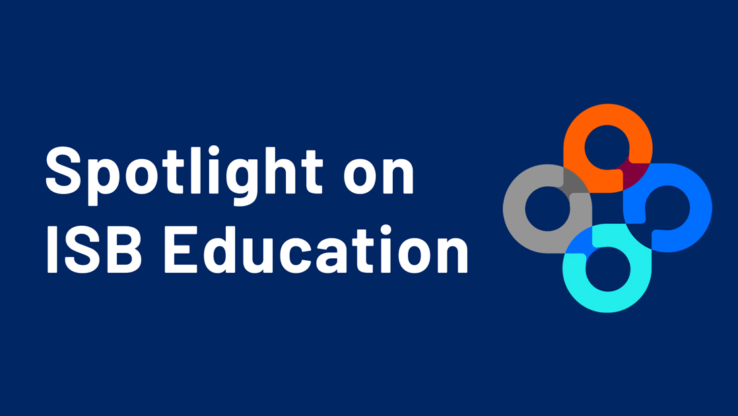ISB Leads the Way in Helping Washington Schools Adopt and Implement Next Generation Science Standards
 isbscience.org/news/2013/10/01/isb-leads-the-way-in-helping-washington-schools-adopt-and-implement-next-generation-science-standards/
isbscience.org/news/2013/10/01/isb-leads-the-way-in-helping-washington-schools-adopt-and-implement-next-generation-science-standards/
Washington State is expected to be among the first 10 states to officially adopt the Next Generation Science Standards. The NGSS were released in spring 2013 after a two-year development process and reflect the most contemporary research on science and science learning in determining what K-12 students ought learn in order to be prepared for college. Washington State is one of 26 lead states that have been instrumental in the effort to update the current national science standards that were set more than 15 years ago.
Institute for Systems Biology (ISB) has been a leading partner in Washington State’s efforts to develop, review and prepare to implement NGSS. Over the last 18 months, ISB’s education staff was invited to participate on state committees – including committees led by the Office of the Superintendent of Public Instruction (OSPI) and Washington LASER (Leadership and Assistance for Science Education Reform) – to learn about the components of the NGSS and the review process.
In turn, ISB staff participated in consecutive reviews and also hosted reviews for local teachers, STEM professionals, and the statewide science education community. Our education director also served as one of four panelists to testify to the State Board of Education regarding NGSS.
With the adoption of NGSS imminent in Washington State, ISB has now shifted to supporting school systems in preparation for the implementation of NGSS, including providing workshops for principals and teachers to help them better understand NGSS.
In a marquee project, ISB has been instrumental in launching a Partnership for Science and Engineering Practices project funded by OSPI. This three-year project, which kicked off in June 2013, partners ISB with University of Washington’s Colleges of Engineering and Education and the Seattle and Renton school districts. The goal of the project is to develop NGSS curriculum enhancements that are aligned with each district’s respective adopted science instructional materials. The enhancements will allow districts a cost effective strategy for aligning to NGSS by adapt existing instructional materials to reflect the new standards.
Seventy elementary and middle school teachers from Seattle and Renton public schools convened at ISB for a one-day overview of the project, and to begin learning about science and engineering practices by meeting with ISB scientists. Subsequently, the teachers met for a one-week summer institute in August to develop NGSS curriculum enhancements. The teachers worked with scientists and engineers who were recruited by UW Engineering and trained by ISB staff. Over the current school year, teachers will pilot their NGSS curriculum enhancements, and project staff, including ISB staff will be available to support the teachers.
At the conclusion of the partnership, not only will the NGSS curriculum enhancements be made available for schools and districts across the state, but also the protocols and templates for development of NGSS curriculum enhancements.
Read more about ISB’s science education work.




